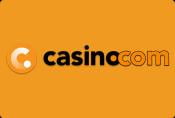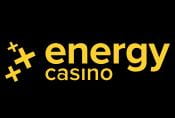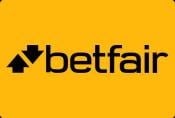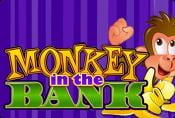Commercial gambling in Europe - control methods and law changes
Gambling in the European Union brought approximately EUR 84.9 bln revenue in 2016. Annual market growth is about 3%. Online gambling attracts about 6.8 million customers covering approximately 17% of the total gambling market. We will cover the characteristics of gambling of all 28 members of the European Union.
Gambling in Europe is diverse and extremely important for the industry as its revenues account for nearly half of the gambling business global revenue. This includes a lot of gambling entertainment from eSports to slot machines. All kinds of games are available both in real and on the our site.
Some European countries prohibit gambling in their own country to varying degrees. Everywhere, operators are required to have a license to conduct business as well as to pay high taxes (up to 80%). All countries differ in a list of permitted gambling games.
However, it does not affect the access to free slot machines. These video slots can be blocked only by ISPs that consider them a form of gambling entertainment. In some cases, the reasons for the termination of access to some online casinos are not announced.
Gambling in the European Union member countries
Gambling EU brings approximately EUR 84.9 billion revenue as at 2016. Annual market growth is about 3%. Online gambling EU attracts about 6.8 million customers covering approximately 17% of the total gambling market.
Brief description of the European Union
The European Union is an association of 28 European countries legally founded by the Maastricht Treaty in 1992. EU adopts the general laws in the field of justice and develops a common policy in trade, agriculture and other industries. Mainly, gambling age in Europe is 18.
The share of the world GDP is about 23%. Nineteen EU countries have introduced Euro currency. The headquarters of 161 largest companies in the world are located in the EU.
EC includes the following countries:
- Austria;
- Belgium;
- Bulgaria;
- United Kingdom;
- Hungary;
- Germany;
- Greece;
- Denmark;
- Ireland;
- Spain;
- Italy;
- Cyprus;
- Latvia;
- Lithuania;
- Luxembourg;
- Malta;
- Netherlands;
- Poland;
- Portugal;
- Romania;
- Slovakia;
- Slovenia;
- Finland;
- France;
- Croatia;
- The Czech Republic;
- Sweden;
- Estonia.
Legislation of EU gambling business
Legislation of gambling depends on the EU-member country, there are no common acts developed yet. Despite the fact that the European Union is a single economic zone, yet many countries prefer regulating their gambling business alone, letting in foreign operators without great enthusiasm.
There are several European gambling association, and organisations and platforms at the European level dealing with gambling:
- European Gaming & Betting Association (EGBA);
- Gaming Regulators European Forum (GREF);
- European Conference on Gambling Studies and Policy Issues.
The European gambling conference holds meetings in various European cities each year. Presenters and lecturers focus on solving different aspects of issues between representatives of all parties involved in gambling business.
If we talk about gambling in general, you should consider an online area. It is this sphere of gambling market that more than other sectors fall under the definition of “pan-European gambling business”.
Online gambling EU
Online gambling in Europe represents nearly half of the global gambling market. It is just over 17% of the total gambling market in general – both online and offline. The EU's share in the global online market looks even more impressive – 47.6%.
The dominance over the world market
Here is the global online gambling industry structure. Due to European casino industry report, market shares online in 2015 were the following:
- 47.6% – Europe;
- 30.3% – Asia and Middle East;
- 13.3% – North America;
- 6.6% – Oceania;
- 1.6% – Latin America and the Caribbean;
- 0.5% – Africa.
As you can see, the gambling Europe industry is the most significant segment of the global online gaming market at the moment.
Gross income from the online gambling throughout the world amounted to EUR 34.6 Bln in 2015. This means that the European market earned EUR 16.47 Bln. Revenues are counted as the difference between all of the bets made and winnings received.
Causes of leadership in the industry
Researchers believe that such leadership is formed due to three main reasons:
- Innovations of European operators;
- high Internet accessibility in Europe;
- lack of opportunities in the US and Asian regulators to build the same industry.
But it is worth mentioning, that the leadership is not very stable. In recent years, the nationalist and protectionist tendencies are strengthening in the EU. The European market is under the threat of disintegration into separate spheres, and then Asia will lead.
Growing industry in the EU
Online gambling – it is a relatively new branch of industry. It is still developing, although it is hindered by the increasing low pressure. Here is a little of gambling Europe statistics. Analysts believe that the gross revenue from online gambling will be EUR 24.9 Bln by 2020.
Note, that the gross income of online gambling in the EU is forecast to be EUR 84.3 billion in 2020. That is if the proportion of the online and offline gambling Europa market remains the same – with a significant advantage of the latter.
The most popular forms of gambling in the EU
- The most popular form of online gambling in the EU is betting. They occupy 37% of the online market;
- online poker goes next – 24%;
- the third place is taken by online casinos – 12%.
Let’s remind, that in total, EU online market occupies 17% of the total gambling market. That is, the figures given above – specific proportion of forms of online gambling. Despite the fact that online industry quickly lures new players, the percentage of offline gambling remains significant – it holds 82.5% of the market today.
Further in the article, we will take a brief look at gambling in general and gambling laws by countries in the EU member states
Gambling in Austria
Casinos and other forms of gambling are authorised in Austria and regulated quite strictly. Monopoly Austrian operator – Casinos Austria. It holds 12 casinos throughout the country and a few dozen casinos abroad Austria.
The government distinguishes the “real” gambling with large sums of money from gambling with small stakes. “Petty” gambling is allowed everywhere, great stakes are available only in big legal casinos.
Income from gambling industry amounted to EUR 3.6 billion in 2014, EUR 1.86 billion were accounted for by the online market. State taxes – EUR 552 million. The number of gaming tables – 558 units, the number of slot machines – 6207 machines. There is a constant steady growth of casino revenues.
Gambling in Belgium
The issues of the gambling industry in Belgium are dealt with by Belgium Gaming Commission. It issues licenses for different classes depending on the size and type of a gambling institution:
- A license – classic casinos;
- A+ – online casinos;
- B license – slot machines and arcades;
- B+ – online arcade;
- C license – cafes and bars;
- F1 license – sports betting;
- F1+ – online sports betting;
- F2 – bookmakers.
As of 2015, the country has 2679 bookmakers, 3 racetracks, 9 casinos. Online gambling is permitted in Belgium since 2002. Belgian authorities allow conducting business only under license and regularly block online sites that do not have permission from the government.
The most popular gambling – betting on horses and sports. The country has six horseraces associations, 572 licenses are issued to bookmakers.
Gross income of the Belgian gambling industry in 2015 amounted to EUR 360.1 million. The revenue of online bookmakers in 2015 amounted to EUR 54.6 mln.
Gambling in Bulgaria
Gambling business in Bulgaria is allowed since 1993. Legal areas – casinos, the national lottery and bingo. Casinos are located mainly in the capital Sofia and the Black Sea resorts. The largest private bookmaker of Bulgaria – Eurofootball.
State regulator – Bulgarian State Gambling Commission. The total government revenue in 2014 from taxes, licenses, fines amounted to approximately USD 20 million.
Local law suffered from confusion for a long time. The government introduced amendments to the gambling laws in 2014 that regularised taxation of gambling operators.
The license is issued for five years, requires a one-time fee in the amount of USD 35 000. Online casino games give the state 20% from their gross income. Offline bingo and keno – 10% of the gross tax.
Gambling in the UK
Gambling in the UK is regulated by the Gambling Commission of the Ministry of Culture, Media and Sport. As of 2016, the United Kingdom hosts:
- 8709 bookmakers;
- 167839 slot machines;
- 575 sites for bingo;
- 148 casinos.
By March 2016, Gambling Commission licensed 2862 operators; 265 of them are operating in several sectors.
Most popular gambling in the UK – online games (33%), the national lottery (25%) betting (24%).
The total revenue from the UK gambling businesses amounted to EUR 16.4 bln from April 2015 to March 2016. Revenue from online business accounted for EUR 5,4 bln. It is higher than results of last year by 20%
Gambling business in Hungary
Gambling is legalised in Hungary since 1991. Regulator – National Tax and Customs Administration of Hungary. The legislation allows issuing 11 licenses for the operation of land-based casinos. At the moment (2016), there are 8 casinos operating in Hungary.
Sports betting, lotteries, scratch cards, keno, bingo – this is a state monopoly of operator Szerencsejatek Zrt. Online business became legal recently.
In 2015, Hungary received EUR 23 million taxes from gambling. Licensed operators pay 20% of the gross income, not less than EUR 340 and no more than EUR 170,000.
Gambling in Germany
It was in Germany (Baden-Baden) where the first legal casino appeared in 1765. The most popular trend of the German gambling – betting on horses and sports. Until 2012, the industry was a monopoly. Then Germany decided to open the market to foreign operators.
The gambling industry in Germany is the largest in Europe. Revenues of the regulated market are EUR 24 billion. The annual income of the grey market in Germany amounts to EUR 960 million.
Most popular games:
- slot machines (34%);
- lottery and sports betting (29%);
- casinos (28%).
Online gambling is generally prohibited. Germany does not allow online casinos, although the situation with betting is still unclear. At least, players are not persecuted for placing bets online in foreign casinos. This confusion arose from the fact that German gambling laws are not sufficient yet.
Online gambling in Greece
Gambling is allowed in Greece. As of 2016, the country has 10 casinos. Lotteries and betting are dealt with by the monopoly operator OPAP.
Greece gambling revenue is EUR 225 million. Online casinos bring EUR 19 million. The illegal business earns about EUR 6 billion annually.
Tax for operators is 30%, players winnings are also taxed. In 2014, Greece received about EUR 525 million of taxes from gambling. Most of the revenue comes from betting.
Gambling age in Greece varies from 18 to 25 years
Gambling in Denmark
Up to 1 January 2012, the company Danske Spil had a monopoly in the field of sports betting. Then, the new law allowed foreign operators to enter the market. Due to the change, the market started developing successfully and, at the end of 2012, the industry revenue was estimated in billions of Danish kroner.
Denmark comprises:
- 7 land-based casinos;
- about 25,500 slot machines in gambling clubs and restaurants.
Total revenue from gambling in 2015 totalled EUR 1,12 bln. Revenue from sports betting equalled EUR 272.9 mln. Online casinos have brought the revenue of EUR 178.1 million. The income from slot machines in 2015 totalled EUR 209 million. Revenues of land-based casinos – EUR 45,7 mln.
Gambling in Ireland
Gambling in Ireland is allowed since 1931. The country has about 20 casinos, 900 bookmakers, 122 arcade halls and about 10,000 slot machines.
The most popular form of gambling in Ireland – betting on horses, dogs and sports. Already in 1931, the authorities adopted Betting Act which regulates this business sector.
As of 2016, the Irish players spend more than EUR 5 billion a year.
Gross revenues from gambling in Ireland amounts to EUR 1.1 billion annually:
- income from land-based bookmakers – EUR 314 million;
- lotteries – EUR 310 million;
- bingo – EUR 8 million;
- slot machines – EUR 130 million;
- casinos or private gambling clubs – EUR 65 million.
Gambling in Spain
Gambling business in Spain is completely legalised. The government generally regulates online business and foreign operators which provide services to Spanish players. Gambling age is Spain is 18 years. Local authorities monitor local casinos and restaurants. Therefore, the Spanish market is different from other countries in Europe – it varies in different regions.
Spain is on the 3rd place among the most gambling euphoria nations. The country has more than 40 casinos, but the land gambling business is becoming less profitable in recent years.
For 2015, online gambling demonstrated an increase of 26%:
- most income is brought by sports betting – EUR 179 million;
- online casinos go next – EUR 67,5 mln;
- poker – EUR 59,8 mln;
- bingo – EUR 7,8 mln.
Authorities impose 25% tax on the gross income of all online operators.
Gambling in Italy
Gambling business in Italy has been existing for centuries – a casino in Venice opened in 1638. Then the industry experienced periods of decline and prosperity. Today, it is completely legal since 2011 – both offline and online.
The Italian government has identified the following tax rates in various sectors of the gambling industry:
- 20% tax on gross casino revenue;
- 11% tax on bingo and other gambling games;
- 4.5% – on gross revenue from sports betting;
- 3% – on tournaments with buy-ins.
The most popular casino games – slot machines. They gather about EUR 4.5 billion annually. They are followed by scratch cards and lottery, then sports betting. The total revenue of the industry is more than EUR 54 billion.
Gambling in Cyprus
Gambling in Cyprus was legalised not so long ago in 2012. Operators are required to be physically present in the country or to conclude a partnership agreement with a local company.
Cyprus has 17 casinos, 1 racecourse, 4 bookmakers, 2 bingo halls.
Legislators distinguish two classes of licensing:
- Class A – license for traditional land-based stakes, although it does not include horse races;
- Class B – license for online betting except for horse races.
Online sports betting – it is the only legal form of online gambling at the moment. All other forms are prohibited in Cyprus. The State lottery is another exception.
Gambling in Latvia
Gambling in Latvia is allowed since 1998, although the first casinos existed since the early 1990s. Online gambling is permitted for operators licensed in the country itself.
Latvia has 5 casinos, 324 gaming halls, 8,135 slot machines. Licenses are issued to 22 operators, 17 of them belong to land-based institutions, 4 – to online casinos.
The total income of the gambling business in 2013 amounted to EUR 191.3 million, a large part was brought by slot machines – EUR 142 million. They occupy 76.8% of the total gambling market.
Gambling business in Lithuania
Gambling is legal in Lithuania since 2001. Online business is legal since 2016 only if an operator has a license. State regulator – Gaming Control Authority of the Ministry of Finance of Lithuania.
Gambling business is conducted by 13 private operators, national lotteries – by 3 operators. The country hosts:
- 18 casinos;
- 179 gambling halls with arcade machines;
- 168 bookmakers.
The total gross income of the industry was EUR 85.8 million in 2015.
Gambling business in Luxembourg
Gambling is legal in Luxembourg since 1970. The first casino opened in 1880. Now, the country has 1 casino – Casino '2000' Montdorf. In addition to the casino, National Lottery operates since 1944 – its profits go to various charities.
Online business is mainly illegal, but it only applies to the country's inner affairs. Players can play in foreign casinos – it is not prohibited.
However, even with such a strict regulation of gambling, the industry gets serious income. The only casino has brought EUR 41 million revenue in 2015, EUR 38 million of which was brought by slot machines.
The new Luxembourg government is considering the possibility of changing the strict policy and issuing more licenses to land casinos.
Gambling business in Malta
Malta is mainly known for the Malta Gaming Authority – an international organisation that issues licenses to gambling operators. It also became the first country in the European Union to establish a detailed regulation of the online gambling industry. At the moment, Malta is one of the most respected gambling jurisdictions in the world.
Inspectors of Malta conducted 8100 inspections of various gambling institutions and games in 2015. The most common subjects for audit are:
- casinos – 5973;
- commercial bingo – 639;
- gambling sites – 655.
In 2016, the Commission of Malta worked on the following projects:
- a new legislative framework for cabinets (one of gambling euphemisms for a form of land-based slot machines);
- technical standards for automated reporting system;
- regulation of poker tournaments;
- customer management system;
- Studying the social impact of gambling in Malta;
- procedures for national risk management;
- new licensing procedures.
The implementation of the 4th anti-money laundering directive is planning to take place in 2017.
The revenue of the organisation in 2015 amounted to EUR 49 million.
Gambling in the Netherlands
Terrestrial gambling in the Netherlands is monopolised by Holland Casino. Its revenues are transferred directly to the state treasury. The first casino was opened in 1976. Now the country has 14 institutions of this network. These 14 casinos include 6455 slot machines, 415 card tables. Their total annual income is EUR 557 million.
Additionally, there are arcade and slot machines. More than 22 thousand spots with slot machines and 15,357 spots with arcade games are located in the country. Three hundred operators hold 800 licenses.
- The revenue from the monopoly National Lottery шы EUR 347.7 mln;
- Revenue from online games – EUR 475 million.
Gambling business in Poland
Gambling is prohibited in Poland, both offline and online. Poland loses about EUR 142 million taxes because of its laws.
However, the country has four terrestrial bookmakers which have a right to operate in a single legal field – sports betting.
Gambling in Portugal
Gambling business in Portugal is regulated by Serviço de Regulação e Inspeção de Jogos do Turismo de Portugal – it is a department that deals with gaming and tourism in Portugal. This authority issues licenses to operators as well. Gambling age in Portugal depends on whether you are a citizen or a foreigner. Portuguese are required to be from 21 to 25 years old depending on a casino, while visitors from other countries can enter gambling venues from the age of 18.
The government has identified the following types of gambling that are subjects to licensing:
- fixed sports betting;
- betting on horse racing;
- bingo;
- gambling games – baccarat, poker, blackjack and others.
Online gambling is permitted since 2015. Operators pay relatively high taxes:
- online casinos – 15-30% of the total revenue;
- online bookmakers – 8-16% of the total revenue.
Taxes on land-based casinos are funding 62% of the national tourism industry.
Lisbon is a home to Casino Estoril – one of the biggest casinos Europe.
Analysts observe a slow decline in revenues of the gambling industry in Portugal. They believe that illegal gambling, online gambling and financial crisis within the country play a part in this process. Let's compare:
- Casino revenues in 2008 – EUR 381 million.
- Casino revenues in 2014 – EUR 267 million.
Gambling in Romania
Offline and online gambling are allowed in Romania. European gambling regulation here is done by National Gambling Office.
The gambling market in Romania in 2015 amounted to EUR 1,2 bln. There are approximately 12 000 gambling halls and 70,000 slot machines in the country. There are at least 11 legal casinos in Romania.
To do business, a company must have at least 75 slots and pay an annual license fee of EUR 3000.
Gambling in Slovakia
Gambling in Slovakia is permitted and regulated by Legislative Acts 2005. The Ministry of Finance is responsible for regulating the industry. The main types of licenses:
- for conducting lotteries;
- for conducting the National Lottery;
- for conducting casino games;
- for conducting betting;
- for slot machines;
- for online gambling.
But law and practice are two different things. The only one state monopoly Tipos operates. It leads the national lottery, online casinos and poker rooms, keno and other games.
Gambling in Slovenia
Gambling was legal in Slovenia yet in the 60s of the 20th century, but it worked exclusively for charitable purposes in those time. Now, there are laws of 1995, but they do not provide a clear legal framework for gambling. Online business is still a grey area.
Today, the country has more than 30 operators, 20 casinos, 2 lotteries. Ten largest casinos together receive EUR 180 million.
Gambling in Finland
Gambling business in Finland has been developing since early 90's. Now, the market is dominated by three monopolies:
- Veikkaus Oy – a license on lottery and betting;
- RAY – Finland's Slot Machine Association – a license for slot machines and casinos;
- Fintoto Oy – a license for horse racing;
- another PAF organisation is responsible for gambling in the Åland Islands.
In 2015, Finland began the merger process of the three gambling companies which is expected to complete by 2017.
Casino revenue in 2014 amounted to EUR 27.7 mln.
Gambling in France
For a long time, France had a monopoly on gambling. It ended in 2010 and now other EU member states can get the French license to conduct business. Paris is among the best European gambling cities.
France has the Europe's second largest lottery – Francaise des Jeux.
In a year, French spend EUR 10.4 billion on gambling. The most popular areas (as for 2013 statistics):
- online – EUR 1,7 billion of bets;
- horse racing – EUR 9,6 bln;
- poker – EUR 569,9 mln;
- sports betting – EUR 199 million.
Analysts observe a slow decline of the French market. Today, there are 18 operators in the country 13 of which are involved in poker. Foreign operators, such as William Hill or the Betfair, wasn’t able to enter the market due to very high taxes.
Gambling in Croatia
Gambling business in Croatia is regulated by the law of the 2014 year. It divides gambling into 4 categories:
- lottery and bingo;
- gambling games with instant wins (scratch cards);
- sports betting;
- slot machines.
Gambling in Croatia brings approximately EUR 50 million annually.
Online operators pay 5% of revenue tax. This is lower than in other EU member countries. In addition, the withdrawal of money from the system is also taxed – 10-30% depending on the amount. Allocations are held by operators and then paid to the government.
Gambling in the Czech Republic
Gambling in Czech is legal. Today, the country has about 170 casinos. Most of them are located in Prague. Czech players have spent EUR 183 million in 2015 – 13% higher than in the past. This is the income of gambling venues.
The Czech Republic licensed 5 online operators. They can only be engaged in sports betting and lotteries. Online casinos are not allowed. Foreign sites are blocked by the government, but it happens rarely. Players are eligible to play on international sites.
Online bookmakers and lotteries are taxed 23%, from a total gaming revenue, casinos – 35%. These contributions are added to the tax on corporate income, which is 19% in the Czech Republic. The bill was approved in 2016 and it will enter into force in January 2017.
Gambling in Sweden
Gambling business in Sweden is governed by Swedish Gambling Authority. Today, four casinos located in four major cities operate in the country. All casinos belong to a state-owned Casino Cosmopol company. Gambling is generally controlled by Svenska Spel, which is also a national.
The peculiarity of the Swedish gambling is that slot machines are replaced by video lottery terminals. They are placed in bars and clubs. Now, about 6,000 terminals are located in the country. Online gambling is not legalised but players can play in foreign casinos.
Total gross income from the regulated companies in 2014 amounted to EUR 124 million. The illegal income of operators without a state license was approximately EUR 445 million in the same year.
Gambling in Estonia
Gambling is legalised in Estonia. Today, the country has five licensed operators that have 60 casinos. Online business is allowed since 2009 and now 10 licensed operators of the country are engaged in this industry.
Market regulator – the Ministry of Finance. The peculiarity of the Estonian market is that there are no distinctions between arcade and casino games. Both types are recognised gambling games.
Total revenue of Estonia casinos in 2015 totalled EUR 54 million.
These are the key facts on the gambling industry in the European Union for each country. Gambling Europe Wikipedia article may contain more detailed information on this subject, as well as articles dedicated to each country separately.













